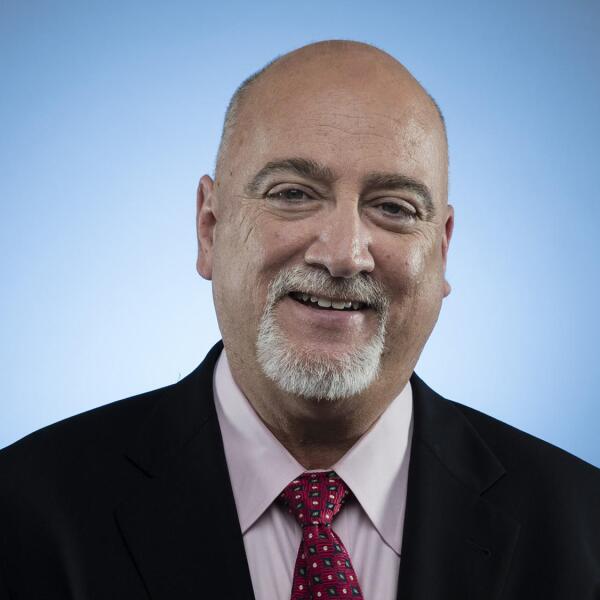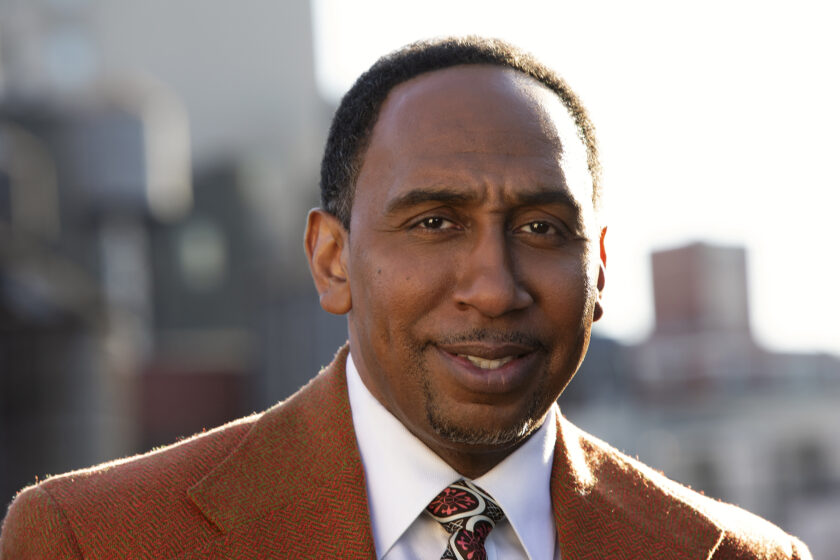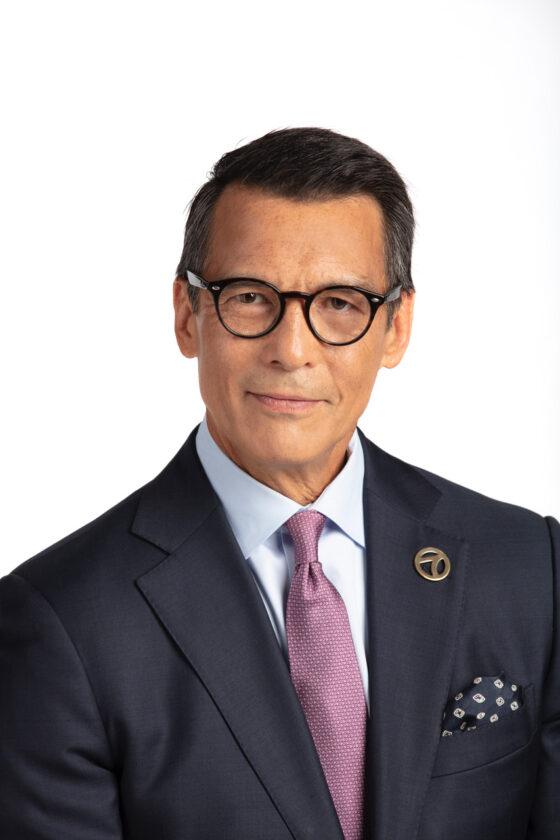Investigative in an Inventive Way
His Work Makes a Difference, Delighting Viewers with His Undercover Investigations
BY BETH BARRETT
It doesn’t matter if they’re CalTrans workers guzzling beer on the taxpayers’ dime, cab drivers stealing computers mislaid by customers or university officials charging up credit cards to feast on catered meals while the state’s deficit soars, they all insist they’ve done absolutely nothing wrong.
That is until CBS2/KCAL9 award-winning, investigative reporter David Goldstein offers to show them the videotape taken with a hidden camera, or the documents he’s pried out of some agency with a public records act request.
“Everyone always is in denial, 99 percent of the time,” says Goldstein, the 2012 winner of the Joseph M. Quinn Memorial Award given by the Los Angeles Press Club annually to a journalist for excellence in a career.
Goldstein, who combines the qualities of the curious reporter with the tenacity of a dogged sleuth, has spent nearly a quarter century in Los Angeles uncovering truths that shatter the cleverest deceptions, spins and outright lies public and appointed officials, as well as businesspeople, health professionals and others, too often inflict upon the public.
“I don’t know where the detective comes from, but I’ve always been the kind of reporter who likes to dig for stories. I really didn’t like it when, as a general assignment reporter, they’d hand you the newspaper and say, ‘We’re doing this story today.’ To me, that’s not what I liked about reporting. I always wanted to try a different angle, to be inquisitive for something more.”
While he’s caught public officials in all manner of shenanigans, Goldstein more significantly has literally changed the state’s legal landscape as his investigations have forced lawmakers to correct abuses, including new laws to protect women from faulty mammogram machines, neighborhoods from concentrations of sex offenders, and kids from the potential of sex offenders being hired as Santas.
His reports on some law enforcement agencies selling assault rifles or confiscated weapons led to a ban on such sales.
Goldstein, who helped create KCAL’s Primetime newscast, says he gets tremendous satisfaction from a job where he has the chance to make a difference in the world, and where he can interact with viewers who are delighted that someone is catching public officials and others cheating or scamming the system. He gets deep satisfaction from “looking out for the average person.”
“That’s the greatest part, hearing from people, hearing from viewers who are outraged … it’s their taxpayer money,” he says.
Previously, Goldstein worked at WCBS-TV in New York, and also in Miami and Jacksonville. His stories included coverage of the Persian Gulf War.
Despite growing up in the suburbs of New York City and the fact his Mom got to watch him on WCBS, Goldstein said the Big Apple wasn’t the place he wanted to live long term to raise a family.
He landed in Los Angeles just in time for some of the city’s biggest and most defining stories like the O.J. Simpson trial, the Rodney King beating and trial of the accused officers, and the devastating riots that followed.
His undercover work grew as the size of hidden cameras shrank and the stories got raves from viewers and racked up awards for the station.
“It’s an adrenaline rush,” Goldstein says of his time in the field, which can include days of stake- outs, confrontations with angry targets, and stone- walling by managers trying to cover for their employees. “It’s really exciting to break something no one else has, to put someone – an elected or appointed official – on the spot, and to say, ‘Look what we’ve found.’”
His work has only grown more inventive as his career has progressed. Goldstein gives a shout out to his colleagues and their brainstorming sessions in coming up with great ideas, and to station managers saying they have backed creativity despite the cost and time.
He went high-tech, for example, in chasing down cabbies suspected of stealing from customers who left their stuff, including phones and computers, by accident in the backseat. So Goldstein started leaving tablet computers with tracking de- vices behind in taxis after rides. When one driver said he couldn’t find the tablet, Goldstein was able to track it to his house. Sure enough the cabbie denied stealing the tablet – blaming it on his son.
The risks of his job are obvious, but the air-tight cases he builds with documents and video footage are probably his best protection against a violent subject. He chuckles at the sensitivity of people to television’s use of hidden cameras noting that with the proliferation of the smart phone, “everyone has a camera.”
Self-effacing, Goldstein says he doesn’t take himself too seriously and puts the influence he’s had on Los Angeles in the perspective of being “just one (journalist) among many.” While he’s won a half dozen Golden Mike Awards and been nominated for more than 15 Emmys, Goldstein prizes the internal rewards of the job the most.
“The greatest satisfaction is just exposing things that shouldn’t be happening, to get it on the air, to show this isn’t right and to know that perhaps this would not be exposed if not for you.”
As he continues to crank out exclusives, Goldstein says he’s just very happy to have been able to stay in the investigative journalism ranks for so long when news organizations today often look there to cut costs.
So what might viewers learn should the hidden camera be flipped and for a change focused on Goldstein’s life? Laughing he replies, “Well I curse a lot.” Damn, that’s it? Turns out, he also likes to play tennis, jog and hang out with his son.



